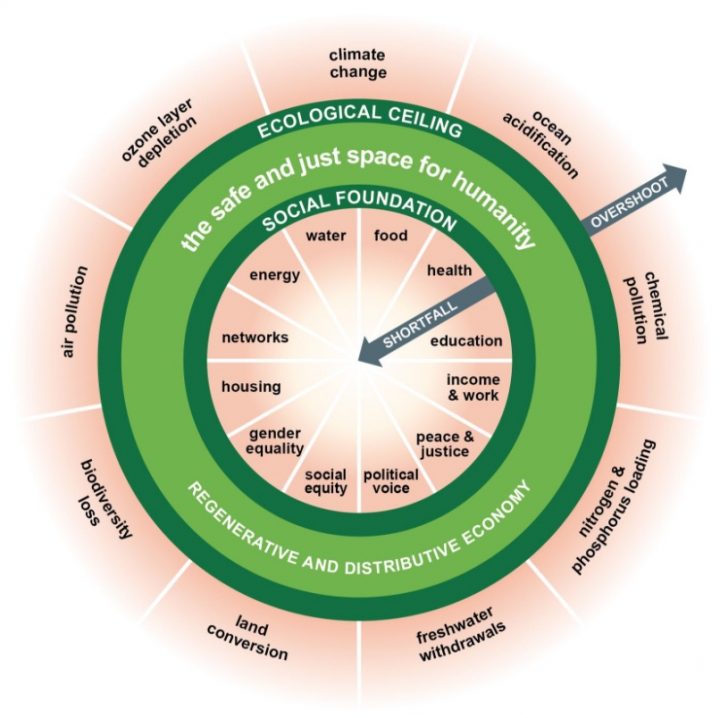 Doughnut Economics: Seven Ways to Think Like a 21st-Century Economist by Kate Raworth
Doughnut Economics: Seven Ways to Think Like a 21st-Century Economist by Kate RaworthMy rating: 4 of 5 stars
A copy of this was provided free of charge from the publisher in return for an honest review.
The dismal science has a propensity to be tedious and uninteresting to anyone outside its narrow sphere. But its influence is wide and pervasive, the neo-liberal agenda has given us a society where there is now a vast chasm between the super-rich elite and the poor underclass and where the single-minded pursuit of profit is degrading the world that we live in and are totally dependent on. This system that favours a small political and financial elite who make decisions based on a narrow range of interests and desires and I think that you could argue that economic theory has remained just a theory. The economists at the London School of Economics were quite embarrassed when the Queen asked how they managed to totally miss the 2008 financial crash. This is a common occurrence, time and time again these events have not been predicted, let alone prevented and they have caused serious harm to economies large and small.
Is there a way of fixing it though?
Kate Raworth thinks that there is. In this radical new economic theory that she sets out in Doughnut Economics, she identifies seven elements where the present systems have failed and her proposals to overhaul the current thinking. Addressing the fundamental issues such as growth, GDP, rational economic man and distribution of wealth her new economic plan takes us away from the folly of equilibrium and the boom and bust that always follows.

The principle of the doughnut above is that the outer ring is the limits of our resources; we, after all, are just on one planet and haven't got another to use when we have ruined and used this one. The inner ring is what we all need to be able to survive as human beings, from the essentials of food, water and shelter to the elements that make us civilised like energy, education and justice. The band between these two lines is the space where we all can live comfortably. It is a simple and elegant model and the places where parts of this have been implemented, the benefits are there for all to see.
When the short-term interests of a small elite diverge from the from the long-term interests of society as a whole, it is as Jared Diamond says, a blueprint for trouble. Raworth has developed an excellent and sustainable model of economics that we really need to start moving towards to, to make the economic systems work once again for the good of humanity and the planet. It is well thought through, with clear reasons as to why the current system is failing for most of the world at the moment and a soundly robust new system. For me though, the only thing it was lacking is the how we are going to change to something like this, that is urgently needed. Budging those vested and deeply ingrained interests is going to involve a lot of pain. Overall a really good book with a positive message and maybe a chance to turn a work that thrives for all.
View all my reviews
Oh this sounds fascinating (this blog is going to be bad for my TBR shelf). It's a shame that she doesn't show the way to get there - a bit like Mary Beard's short book on feminism in that respect. But an interesting theory indeed.
ReplyDeleteI am normally to blame for many people's TBRs becoming out of control. Not sure how we would get to a system like this that benefits all, it might involve a revolution...
ReplyDelete